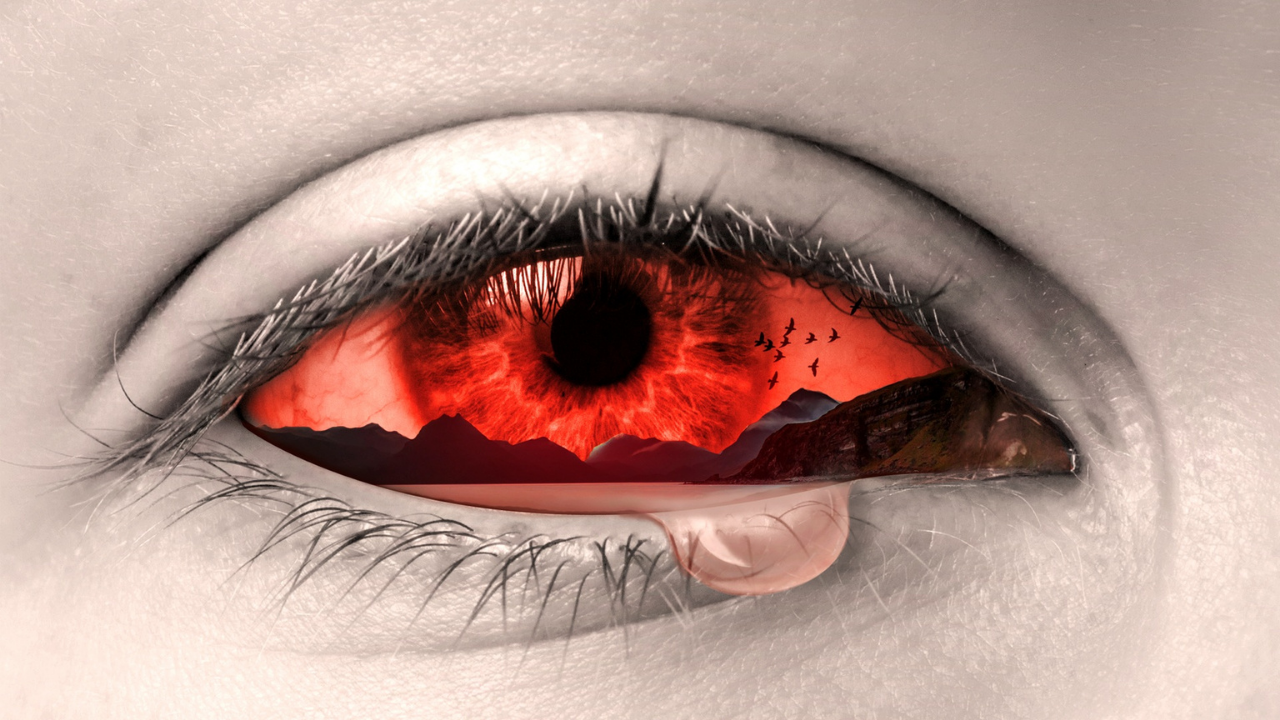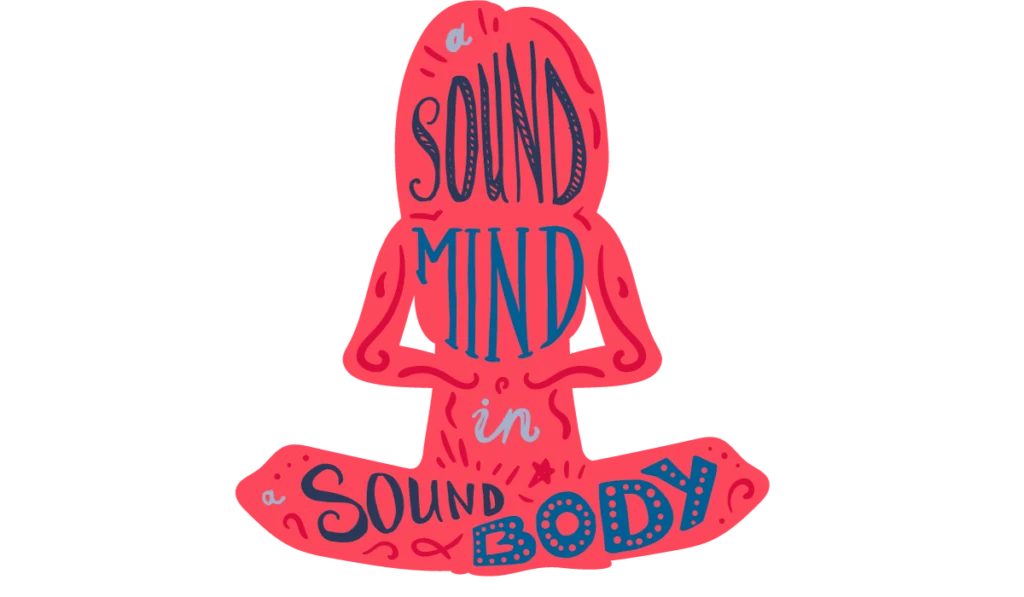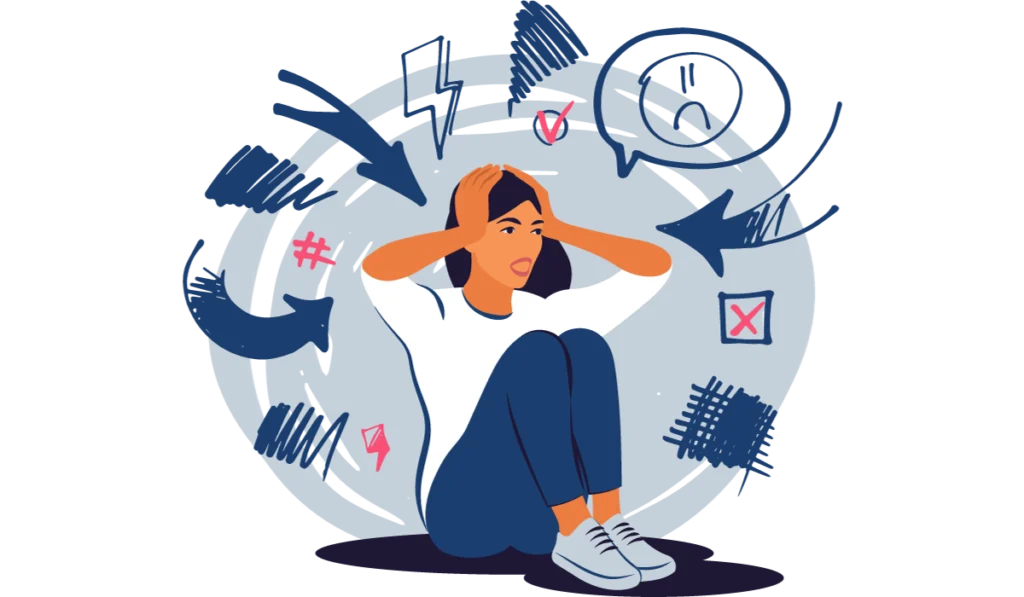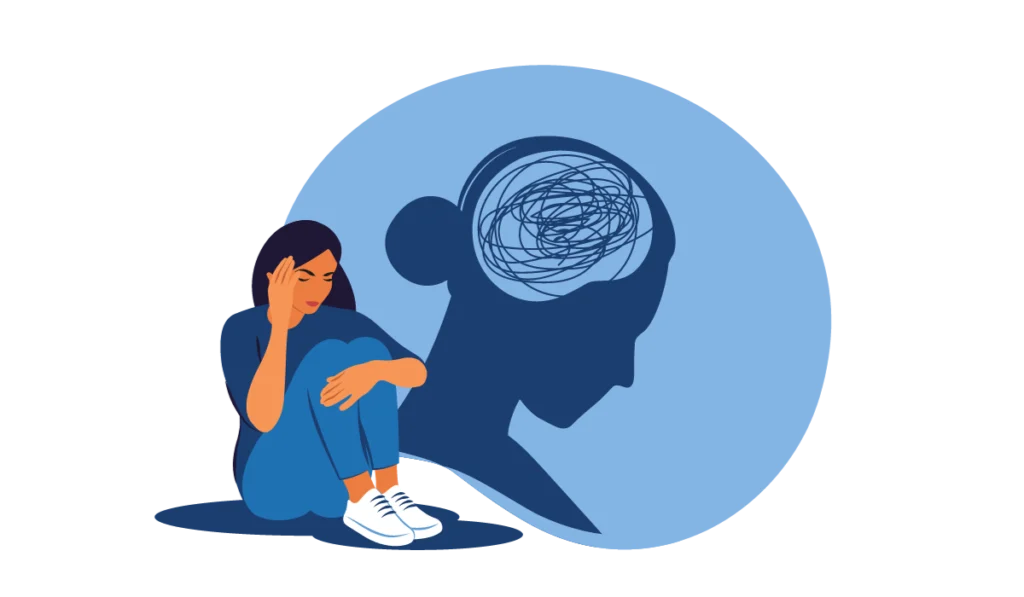Mind Over Matter: How Qigong and Tai Chi Transform Teen Stress
Discover the power of Qigong and Tai Chi in improving teen mental health, alleviating anxiety and depression, and promoting holistic well-being.

In This Article:
Key Points
- Emphasize the Prevalence of Adolescent Mental Health Issues:
- Highlight the alarming statistics from WHO and other studies that show the high percentage of children and teens affected by mental health problems, setting the stage for the importance of finding effective interventions.
- Show the Science Behind Exercise and Mental Health:
- Discuss the scientific research that has established a connection between physical exercise and improved mental health outcomes, laying the groundwork for the focus on Qigong and Tai Chi.
- Present Qigong and Tai Chi as Holistic Healing Methods:
- Introduce Qigong and Tai Chi as holistic mind-body exercises that combine meditation, relaxation, and gentle movement, and have been proven to have positive impacts on mental health.
- Provide Evidence of Benefits for Adolescents:
- Present the research studies that have specifically looked at the benefits of Tai Chi and Qigong for teenagers, providing concrete evidence for the effectiveness of these practices in this age group.
- Discuss the Gaps in Current Research and Call for Further Studies:
- Address the limitations of the current research and the need for more systematic reviews and meta-analyses to conclusively prove the effectiveness of Tai Chi and Qigong for adolescent mental health.
Mind-Body Connection: Qigong and Tai Chi as Holistic Healing
The World Health Organization (WHO) has highlighted the seriousness of mental health issues, noting that depression is a primary cause of disability, affecting roughly 264 million people globally A Trusted Source WHO (2019). Mental Health. Available online at Link .
This isn't just an adult problem; about 20% of children and teens worldwide are dealing with mental health issues.
Shockingly, nearly half of all mental health disorders begin before the age of 14.
When adolescents grapple with mental health problems, the fallout can be severe, ranging from poor grades and violence to teenage pregnancy, drug abuse, and even suicide A Trusted Source Das, J. K., Salam, R. A., Lassi, Z. S., Khan, M. N., Mahmood, W., Patel, V., et al. (2016). Interventions for adolescent mental health: an overview of systematic reviews. J. Adolesc. Health 59, S49–S60. doi: 10.1016/j.jadohealth.2016.06.020 PubMed AbstractCrossRef Full TextGoogle Scholar A Trusted Source Dray, J., Bowman, J., Campbell, E., Freund, M., Wolfenden, L., Hodder, R. K., et al. (2017). Systematic review of universal resilience-focused interventions targeting child and adolescent mental health in the school setting. J. Am. Acad. Child Adolesc. Psychiatry 56, 813–824. doi: 10.1016/j.jaac.2017.07.780 PubMed AbstractCrossRef Full TextGoogle Scholar .
This makes adolescence a critical time for immediate and effective intervention to prevent these behaviors from carrying over into adulthood.

Research has shown that physical exercise can be a beneficial form of therapy for mental health.
Specifically, Qigong, a mind-body exercise that includes meditation, relaxation, and gentle movement, has been found to stabilize mood and alleviate stress A Trusted Source Tsang, H. W., Cheung, L., and Lak, D. C. (2002). Qigong as a psychosocial intervention for depressed elderly with chronic physical illnesses. Int. J. Geriatr. Psychiatry 17, 1146–1154. doi: 10.1002/gps.739 PubMed AbstractCrossRef Full TextGoogle Scholar A Trusted Source Wang, C.-W., Chan, C. H., Ho, R. T., Chan, J. S., Ng, S.-M., and Chan, C. L. (2014a). Managing stress and anxiety through qigong exercise in healthy adults: a systematic review and meta-analysis of randomized controlled trials. Complementary Alternat. Med. 14:8. doi: 10.1186/1472-6882-14-8 PubMed AbstractCrossRef Full TextGoogle Scholar .
Numerous studies have supported the positive impact of Tai Chi and Qigong on both physical and mental health across various populations A Trusted Source Cheng, F. K. (2015). Effects of Baduanjin on mental health: a comprehensive review. J. Bodyw. Mov. Ther. 19, 138–149. doi: 10.1016/j.jbmt.2014.11.001 PubMed AbstractCrossRef Full TextGoogle Scholar A Trusted Source Webster, C. S., Luo, A. Y., Krageloh, C., Moir, F., and Henning, M. (2016). A systematic review of the health benefits of Tai Chi for students in higher education. Prev. Med. Rep. 3, 103–112. doi: 10.1016/j.pmedr.2015.12.006 PubMed AbstractCrossRef Full TextGoogle Scholar A Trusted Source Zou, L., Pan, Z., Yeung, A., Talwar, S., Wang, C., Liu, Y., et al. (2018). A review study on the beneficial effects of Baduanjin. J. Altern. Complement. Med. 24, 324–335. doi: 10.1089/acm.2017.0241 PubMed AbstractCrossRef Full TextGoogle Scholar A Trusted Source Chang, P. S., Knobf, T., Oh, B., and Funk, M. (2019). Physical and psychological health outcomes of qigong exercise in older adults: a systematic review and meta-analysis. Am. J. Chin. Med. 47, 301–322. doi: 10.1142/S0192415X19500149 PubMed AbstractCrossRef Full TextGoogle Scholar .
While most research has focused on adults and older individuals, there is a growing body of evidence that shows the potential benefits of Tai Chi and Qigong for teenagers.
Studies have explored the effects of these exercises on adolescent anxiety, depression, stress, and self-esteem, with some positive results A Trusted Source Lee, H. J., Chae, Y., Park, H. J., Hahm, D. H., An, K., and Lee, H. (2009). Turo (qi dance) training attenuates psychological symptoms and sympathetic activation induced by mental stress in healthy women. Evid. Based Complement Alternat. Med. 6, 399–405. doi: 10.1093/ecam/nem120 PubMed AbstractCrossRef Full TextGoogle Scholar A Trusted Source Terjestam, Y., Jouper, J., and Johansson, C. (2010). Effects of scheduled qigong exercise on pupils' well-being, self-image, distress, and stress. J. Altern. Complement. Med. 16, 939–944. doi: 10.1089/acm.2009.0405 PubMed AbstractCrossRef Full TextGoogle Scholar
A Trusted Source Sousa, C. M., Goncalves, M., Machado, J., Efferth, T., Greten, T., Froeschen, P., et al. (2012). Effects of qigong on performance-related anxiety and physiological stress functions in transverseflute music school children: a feasibility study. J. Chin. Integrative Med. 10, 858–868. doi: 10.3736/jcim20120805 PubMed AbstractCrossRef Full TextGoogle Scholar A Trusted Source Bao, X. (2013). Intervention of Taijiquan on subhealth status of adolescents. Forward Position 2013, 102–104. A Trusted Source Chang, C., Tsai, G., and Hsieh, C. J. (2013). Psychological, immunological and physiological effects of a Laughing Qigong Program (LQP) on adolescents. Complement. Ther. Med. 21, 660–668. doi: 10.1016/j.ctim.2013.09.004 PubMed AbstractCrossRef Full TextGoogle Scholar A Trusted Source Bao, X., and Jin, K. (2015). The beneficial effect of Tai Chi on self-concept in adolescents. Int. J. Psychol. 50, 101–105. doi: 10.1002/ijop.12066 PubMed AbstractCrossRef Full TextGoogle Scholar A Trusted Source Bao, X., and Niu, Y. (2018). Effect of Taijiquan on Mental Health quality of Junior Middle School students. Shanghai Educ. Sci. Res. 2018:2. doi: 10.16194/j.cnki.31-1059/g4.2018.02.022 CrossRef Full TextGoogle Scholar A Trusted Source Zhang, J., Qin, S., Zhou, Y., Meng, L., Su, H., and Zhao, S. (2018). A randomized controlled trial of mindfulness-based Tai Chi Chuan for subthreshold depression adolescents. Neuropsychiatr. Dis. Treat 14, 2313–2321. doi: 10.2147/NDT.S173255 PubMed AbstractCrossRef Full TextGoogle Scholar .
However, the current lack of systematic reviews and meta-analyses means there is no conclusive evidence on the overall effectiveness of Tai Chi and Qigong for adolescent mental health.
This article fills that gap by systematically reviewing clinical evidence on the impact of Tai Chi and Qigong on the psychological status of adolescents.
The Mindful Impact of Tai Chi & Qigong
Tai Chi & Qigong: Alleviating Anxiety
Recent studies dove into the effects of Tai Chi and Qigong on anxiety A Trusted Source Lee, H. J., Chae, Y., Park, H. J., Hahm, D. H., An, K., and Lee, H. (2009). Turo (qi dance) training attenuates psychological symptoms and sympathetic activation induced by mental stress in healthy women. Evid. Based Complement Alternat. Med. 6, 399–405. doi: 10.1093/ecam/nem120 PubMed AbstractCrossRef Full TextGoogle Scholar A Trusted Source Bao, X. (2013). Intervention of Taijiquan on subhealth status of adolescents. Forward Position 2013, 102–104. A Trusted Source Bao, X., and Jin, K. (2015). The beneficial effect of Tai Chi on self-concept in adolescents. Int. J. Psychol. 50, 101–105. doi: 10.1002/ijop.12066 PubMed AbstractCrossRef Full TextGoogle Scholar A Trusted Source Bao, X., and Niu, Y. (2018). Effect of Taijiquan on Mental Health quality of Junior Middle School students. Shanghai Educ. Sci. Res. 2018:2. doi: 10.16194/j.cnki.31-1059/g4.2018.02.022 CrossRef Full TextGoogle Scholar .

The results?
Participants practicing these exercises experienced a decrease in anxiety levels compared to control groups (SMD = 0.386, 95% CI [0.233, 0.538]).
Interestingly, those practicing Qigong witnessed a greater reduction in anxiety than their Tai Chi counterparts.
SMD stands for Standardized Mean Difference. It is a summary statistic used in meta-analysis and systematic reviews that helps to quantify the size of the difference between two groups. By standardizing the results, the SMD allows for a direct comparison of the results across different studies, even if they have used different scales or measures
FYI
Stress Busters? The Limited Impact of Exercises
When it comes to stress, three key studies suggest Tai Chi and Qigong might not be the answer for everyone A Trusted Source Terjestam, Y., Jouper, J., and Johansson, C. (2010). Effects of scheduled qigong exercise on pupils' well-being, self-image, distress, and stress. J. Altern. Complement. Med. 16, 939–944. doi: 10.1089/acm.2009.0405 PubMed AbstractCrossRef Full TextGoogle Scholar A Trusted Source Lee, L. Y., Chong, Y. L., Li, N. Y., Li, M. C., Lin, L. N., Wong, L. Y., et al. (2013). Feasibility and effectiveness of a Chen-style Tai Chi programme for stress reduction in junior secondary school students. Stress Health 29, 117–124. doi: 10.1002/smi.2435 PubMed AbstractCrossRef Full TextGoogle Scholar A Trusted Source Zhang, J., Qin, S., Zhou, Y., Meng, L., Su, H., and Zhao, S. (2018). A randomized controlled trial of mindfulness-based Tai Chi Chuan for subthreshold depression adolescents. Neuropsychiatr. Dis. Treat 14, 2313–2321. doi: 10.2147/NDT.S173255 PubMed AbstractCrossRef Full TextGoogle Scholar .
The overall impact on reducing stress was found to be insignificant when compared to control measures (SMD = 0.317, 95 CI% [−0.008, 0.642]).
In essence, neither exercise stood out as a significant stress reducer.
Delving Deeper: Cortisol Levels & Stress
Digging deeper, two studies focused on the effect of Qigong on cortisol levels – a stress biomarker A Trusted Source Sousa, C. M., Goncalves, M., Machado, J., Efferth, T., Greten, T., Froeschen, P., et al. (2012). Effects of qigong on performance-related anxiety and physiological stress functions in transverseflute music school children: a feasibility study. J. Chin. Integrative Med. 10, 858–868. doi: 10.3736/jcim20120805 PubMed AbstractCrossRef Full TextGoogle Scholar A Trusted Source Chang, C., Tsai, G., and Hsieh, C. J. (2013). Psychological, immunological and physiological effects of a Laughing Qigong Program (LQP) on adolescents. Complement. Ther. Med. 21, 660–668. doi: 10.1016/j.ctim.2013.09.004 PubMed AbstractCrossRef Full TextGoogle Scholar .
The verdict?
Qigong was found to substantially reduce cortisol levels, hinting at its potential stress-reducing properties (SMD = 0.621, 95 CI% [0.180, 1.062]).
Mood & Self-Esteem: A Closer Look
On the mood front, two analyses compared Qigong to a waitlist scenario A Trusted Source Chang, C., Tsai, G., and Hsieh, C. J. (2013). Psychological, immunological and physiological effects of a Laughing Qigong Program (LQP) on adolescents. Complement. Ther. Med. 21, 660–668. doi: 10.1016/j.ctim.2013.09.004 PubMed AbstractCrossRef Full TextGoogle Scholar A Trusted Source Chen, X., and Zheng, L. (2018). A brief Analysis of the influence of Wulao Qi injury in Baduanjin Middle School on the emotional problems of Middle School students. Sports Sports Supplies Sci. Technol. 12, 194–195. doi: 10.1002/CNKI:SUN:WTYP.0.2018-24-095 CrossRef Full TextGoogle Scholar .
The combined results?

No significant mood improvement from Qigong (SMD = 0.104, 95 CI% [−0.245, 0.452]).
As for self-esteem, Qigong didn’t show a noticeable impact either (SMD = −0.059, 95 CI% [−0.348, 0.230]).
Unique Outcomes: Psychological Distress & Self-Concept
Some individual studies explored unique areas.
For instance, Terjestam et al A Trusted Source Terjestam, Y., Jouper, J., and Johansson, C. (2010). Effects of scheduled qigong exercise on pupils' well-being, self-image, distress, and stress. J. Altern. Complement. Med. 16, 939–944. doi: 10.1089/acm.2009.0405 PubMed AbstractCrossRef Full TextGoogle Scholar didn't find Qigong to significantly improve psychological distress.
However, a study by Bao and Jin (2015) A Trusted Source Bao, X., and Jin, K. (2015). The beneficial effect of Tai Chi on self-concept in adolescents. Int. J. Psychol. 50, 101–105. doi: 10.1002/ijop.12066 PubMed AbstractCrossRef Full TextGoogle Scholar found a notable boost in self-concept after a year-long Tai Chi practice.
Another interesting finding by Bao and Niu (2018) A Trusted Source Bao, X., and Niu, Y. (2018). Effect of Taijiquan on Mental Health quality of Junior Middle School students. Shanghai Educ. Sci. Res. 2018:2. doi: 10.16194/j.cnki.31-1059/g4.2018.02.022CrossRef Full TextGoogle Scholar showed Tai Chi positively impacted middle school students' overall mental health, including aspects like emotional stability (SMD = −0.377, 95 CI% [−0.641, −0.114]).
Discussion
This article, the impact of Tai Chi and Qigong exercises on adolescents' psychological health outcomes, draws on evidence from randomized controlled trials (RCTs) and non-randomized controlled trials.
The findings suggest that both short-term and long-term engagement in Tai Chi and Qigong exercises can potentially enhance psychological well-being, mitigate symptoms of depression and anxiety, and regulate stress biomarkers such as cortisol levels
A Trusted Source Wang, C., Ramel, J., Kupelnick, B., Scott, T., and Schmid, C. H. (2010). Tai Chi on psychological well-being: systematic review and meta-analysis. Complement. Alternative Med. 10:23. doi: 10.1186/1472-6882-10-23 PubMed AbstractCrossRef Full TextGoogle Scholar A Trusted Source Yin, J., and Dishman, R. K. (2014). The effect of Tai Chi and Qigong practice on depression and anxiety symptoms: A systematic review and meta-regression analysis of randomized controlled trials. Mental Health Physical Activity 7, 135–146. doi: 10.1016/j.mhpa.2014.08.001 CrossRef Full TextGoogle Scholar A Trusted Source Liu, X., Clark, J., Siskind, D., Williams, G. M., Byrne, G., Yang, J. L., et al. (2015). A systematic review and meta-analysis of the effects of Qigong and Tai Chi for depressive symptoms. Complement. Ther. Med. 23, 516–534. doi: 10.1016/j.ctim.2015.05.001 PubMed AbstractCrossRef Full TextGoogle Scholar A Trusted Source Sharma, M., and Haider, T. (2015). Tai chi as an alternative and complimentary therapy for anxiety: a systematic review. J. Evid. Based Complement. Altern. Med. 20, 143–153. doi: 10.1177/2156587214561327 PubMed AbstractCrossRef Full TextGoogle Scholar A Trusted Source Tong, Y., Chai, L., Lei, S., Liu, M., and Yang, L. (2018). Effects of Tai Chi on self-efficacy: a systematic review. Evid. Based Complement. Alternat. Med. 2018:1701372. doi: 10.1155/2018/1701372 PubMed AbstractCrossRef Full TextGoogle Scholar .
The Connection Between Exercise and Mental Health
Previous research has highlighted the relationship between various forms of exercise, including aerobic activities, yoga, and physical activity, and improved mental health outcomes
A Trusted Source Lees, C., and Hopkins, J. (2013). Effect of aerobic exercise on cognition, academic achievement, and psychosocial function in children: a systematic review of randomized control trials. Prev. Chronic. Dis. 10:E174. doi: 10.5888/pcd10.130010 PubMed AbstractCrossRef Full TextGoogle Scholar A Trusted Source Cramer, H., Lauche, R., Langhorst, J., and Dobos, G. (2013). Yoga for depression: a systematic review and meta-analysis. Depress Anxiety 30, 1068–1083. doi: 10.1002/da.22166 PubMed AbstractCrossRef Full TextGoogle Scholar A Trusted Source Gong, H., Ni, C., Shen, X., Wu, T., and Jiang, C. (2015). Yoga for prenatal depression: a systematic review and meta-analysis. BMC Psychiatry 15:14. doi: 10.1186/s12888-015-0393-1 PubMed AbstractCrossRef Full TextGoogle Scholar A Trusted Source Hendriks, T., Jong, J. D., and Cramer, H. (2017). The effects of yoga on positive mental health among healthy adults: a systematic review and meta-analysis. J. Alternative Complement. Med. 23, 505–517. doi: 10.1089/acm.2016.0334 PubMed AbstractCrossRef Full TextGoogle Scholar A Trusted Source Penedoa, F. J., and Dahna, J. R. (2005). Exercise and well-being: a review of mental and physical health benefits associated with physical activity. Curr. Opinion Psychiatry 18, 189–193. doi: 10.1097/00001504-200503000-00013 PubMed AbstractCrossRef Full TextGoogle Scholar A Trusted Source Lubans, D., Richards, J., Hillman, C., Faulkner, G., Mark, B., Michael, N., et al. (2016). Physical activity for cognitive and mental health in youth: a systematic review of mechanisms. Pediatrics 138:1642. doi: 10.1542/peds.2016-1642 PubMed AbstractCrossRef Full TextGoogle Scholar .
These findings emphasize the benefits of Tai Chi and Qigong in reducing anxiety and depression symptoms.
Subgroup Analysis: Qigong vs. Tai Chi
The subgroup analysis revealed that adolescents practicing Qigong experienced a more significant improvement in anxiety and depression symptoms compared to those engaging in Tai Chi.
This could be attributed to the internal energy focus of Qigong, which emphasizes mind, breath, and inner feelings, as opposed to the external defending and attacking intentions of Tai Chi A Trusted Source Liu, X., Clark, J., Siskind, D., Williams, G. M., Byrne, G., Yang, J. L., et al. (2015). A systematic review and meta-analysis of the effects of Qigong and Tai Chi for depressive symptoms. Complement. Ther. Med. 23, 516–534. doi: 10.1016/j.ctim.2015.05.001PubMed AbstractCrossRef Full TextGoogle Scholar .
Cortisol Levels and Stress Reduction
The analysis also demonstrated a favorable effect of Qigong on reducing cortisol levels, supporting the positive impacts of Qigong on stress reduction.
This finding aligns with previous studies that have explored the relationship between physical activity and cortisol levels in young healthy individuals A Trusted Source Alghadir, A. H., Gabr, S. A., and Aly, F. A. (2015). The effects of four weeks aerobic training on saliva cortisol and testosterone in young healthy persons. J. Phys. Ther. Sci. 27, 2029–2033. doi: 10.1589/jpts.27.2029 PubMed AbstractCrossRef Full TextGoogle Scholar A Trusted Source Hötting, K., Schickert, N., Kaiser, J., Röder, B., and Schmidt-Kassow, M. (2016). The effects of acute physical exercise on memory, peripheral BDNF, and cortisol in young adults. Neural plasticity,. doi: 10.1155/2016/6860573 PubMed AbstractCrossRef Full TextGoogle Scholar .
Insufficient Evidence for Other Psychological Variables
The review did not find sufficient evidence to support the positive effects of Qigong on mood state and self-esteem.
This finding contrasts with previous studies that demonstrated the benefits of Tai Chi on enhanced mood, but not on self-esteem A Trusted Source Wang, C., Ramel, J., Kupelnick, B., Scott, T., and Schmid, C. H. (2010). Tai Chi on psychological well-being: systematic review and meta-analysis. Complement. Alternative Med. 10:23. doi: 10.1186/1472-6882-10-23 PubMed AbstractCrossRef Full TextGoogle Scholar A Trusted Source Li, M., Fang, Q., Li, J., Zheng, X., Tao, J., Yan, X., et al. (2015). The effect of Chinese traditional exercise-baduanjin on physical and psychological well-being of college students: a randomized controlled trial. PLoS ONE 10:e0130544. doi: 10.1371/journal.pone.0130544 PubMed AbstractCrossRef Full TextGoogle Scholar A Trusted Source Zheng, G., Lan, X., Li, M., Ling, K., Lin, H., Chen, L., et al. (2015). Effectiveness of Tai Chi on Physical and Psychological Health of College Students: Results of a Randomized Controlled Trial. PLoS ONE 10:e0132605. doi: 10.1371/journal.pone.0132605 PubMed AbstractCrossRef Full TextGoogle Scholar .
Limitations and Future Directions
While our review presents valuable insights into the potential benefits of Tai Chi and Qigong on adolescents' psychological health
It is essential to interpret the results cautiously due to the limited number of studies and the potential methodological heterogeneity across the included studies.
Future studies should incorporate objective measures of psychological outcomes and focus on uncovering the underlying physiological mechanisms behind the observed benefits.
Conclusion
While the study shines a light on Qigong's potential in enhancing adolescents' mental wellness—alleviating symptoms of anxiety and depression and reducing cortisol levels—it's crucial to approach these findings with caution.
The limited number of studies and their methodological limitations warrant a need for more comprehensive, well-controlled randomized trials.
Future research should not only validate these findings but also delve deeper, exploring the positive facets of psychological health outcomes specific to this demographic, backed by objective measures of anxiety and stress response.
Review date not set.
How we reviewed this article:
Latest on:





